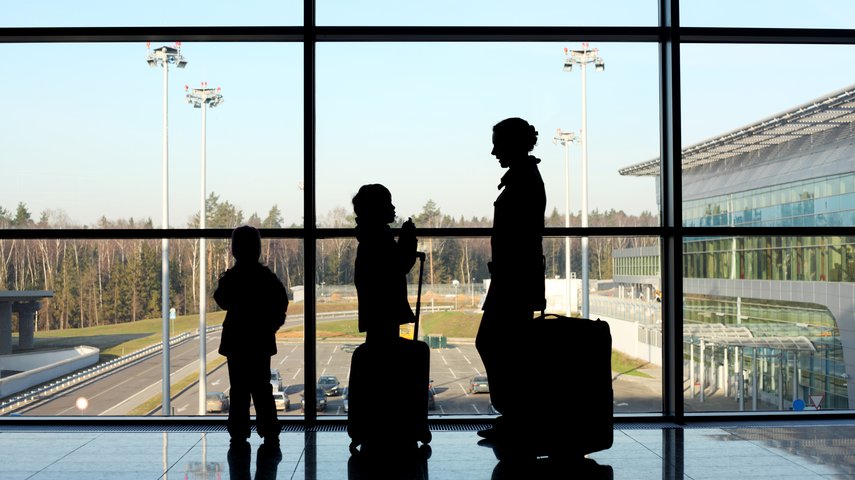Impact of Recent UK Immigration Changes on the Education Sector

With a General Election looming later this year, the Government has been busier than ever introducing immigration changes aimed at slashing net migration to the UK by 300,000. These changes will particularly affect education providers holding Home Office sponsor licences to recruit overseas staff and/or enrol international students.
Significant changes to the sponsorship system include increasing the minimum salary threshold for Skilled Worker sponsorship to £38,700 (further details found here). Increasing digitisation of the sponsor licence system has also seen the recent extension of licence expiry dates by 10 years and automated renewal of Skilled Worker Certificate of Sponsorship annual allocation.
The international student sector has already seen the start of significant changes, including restrictions on students’ ability to bring their family dependants to the UK and to switch into work routes, coupled with rising UK visa costs and an expedited review of the popular post study Graduate Visa Route. Such immigration changes are likely to be deterring international students from choosing to study in the UK.
Increase to Minimum Salary Threshold for Skilled Worker Visa Sponsorship
In line with the Government’s 5 point plan to reduce net migration to the UK, the minimum salary threshold for Skilled Worker visa sponsorship will increase to £38,700 per annum for all Certificates of Sponsorship assigned on or after 4 April 2024 OR the going rate for the role (whichever is higher). ‘Going rates’ are determined by the Occupation Code for each role. The new ‘going rates’ are calculated with reference to the current ‘median’ salary levels (i.e. at the 50th percentile) using Office for National Statistics (ONS) data. Currently, going rates are based on the ONS 2010 data and calculated at the 25th percentile. This means that some roles will have a ‘going rate’ significantly higher than the new £38,700 threshold.
In positive news for the education sector however, the new Statement of Changes to the Immigration Rules published on 14 March 2024 confirms that the new higher general salary threshold of £38,700 will not apply to sponsoring overseas teachers. Moreover, the ‘going’ rates on the national teachers’ pay scales will continue to apply for relevant Occupation Codes.
Whilst this is welcomed, it is important to note that the new minimum salary threshold to sponsor an overseas teacher under the Skilled Worker visa route has been increased to £23,200 (from £20,960), or the relevant going rate on the national teachers’ pay scales, whichever is higher. This means that to sponsor a qualified teacher outside London, for instance, the pay scale rate is £30,000 whereas in Inner London, the pay scale rate for qualified teachers rises to £36,745.
Another welcome development introduced by the new Statement of Changes is that more roles will qualify as ‘education roles’ and therefore benefit from the lower salary rates. From 4 April 2024, headteachers, teaching assistants (including higher level) and educational support assistants will all be newly categorised as education sector occupations.
Headteachers’ salaries will also now be based on the national teachers’ pay scales. For classroom teaching assistants or education support roles in England and Wales, the new minimum salary for Skilled Worker visa sponsorship will be £23,500.
Some teaching roles, however, remain excluded from classification as ‘education sector’ roles and therefore will be subject to the new higher minimum salary threshold of £38,700 or the ‘going rates’, whichever is higher. This includes Occupation Code 2319 (Other Teaching Professionals) which historically covered TEFL roles. TEFL roles will now be covered by a new specific Occupation Code for TEFL teachers (2317 Teachers of English as a Foreign Language), which is also subject to the new higher salary thresholds.
Although national teachers' pay scale rates will still apply to primary and secondary teaching roles, there are changes to the numbers of Occupation Codes to watch out for when assigning Certificates of Sponsorship to overseas teachers. For instance, the Occupation Code for Secondary School teachers will change from 2314 to 2313. Nursery Education Teaching Professionals now have their own Education Code number 2315 which means that that Primary Education Teaching Professionals are now Occupation Code 2314 (and no longer 2315).
Changes to English Language Requirements
Applicants on many UK visa routes, including the Skilled Worker route and the Student route, need to meet an English language requirement. In a new change to Appendix English Language, the Statement of Changes confirms that an International GCSE in English (Language or Literature) will now be accepted as one of the ways this can be evidenced (provided it was studied at a UK school and studies began whilst under 18).
Changes to the Financial Requirement
Applicants on many UK visa routes, including the Skilled Worker, the Student Visa and the Child Student visa route, also need to meet a financial requirement. The new Statement of Changes confirms that for visa applications made on or after the 4 April 2024, a new provision will be inserted into Appendix Finance so that where using the exchange rate on www.oanda.com cannot be used to convert certain foreign currencies into GBP (specifically Syrian pounds and Iranian Rials), the Foreign Commonwealth and Development Office’s Consular Exchange Rate will be used for the appropriate exchange rate on the date of the application. Due to the significant differences in the rates between the converter tools, student sponsors and applicants should be careful when checking bank statements of affected nationalities to avoid visa refusals on financial grounds.
Changes to the Sponsor Management System
In other sponsorship system changes previously announced, Home Office sponsor licences which expire after 6 April 2024 have been automatically extended, without charge, for a period of 10 years. Sponsors will not be required to take any action to renew their licence on their Sponsor Management System (SMS) accounts nor pay any renewal fees. Sponsors should log in to their SMS accounts and diarise their new licence renewal dates.
Since June 2023, the Home Office has also fully automated the annual allocation of undefined Skilled Worker Certificates of Sponsorship for A-Rated Worker Sponsors. The same number of Certificates of Sponsorship will be granted, as assigned by the sponsor from their previous 12 month annual allocation.
The automation is part of the Home Office’s drive to digitise systems and should ease the administrative process for sponsors. With licence renewal dates now 10 years in the future, there is a word of warning about the potential scope for inadvertent complacency for sponsors. Previously licence renewal every four years – and associated UKVI email reminders - at least prompted sponsor licence holders to check for any mandatory reporting, such as new teaching partnerships or sites, and/or to carry out general housekeeping on the SMS, such as updating Key Personnel. In the absence of these regular licence expiry reminders, sponsors must ensure they remain aware of and compliant with ongoing sponsor reporting and record-keeping duties.
Student sponsors must still apply for a Basic Compliance Assessment on an annual basis to retain their student sponsor status (and apply for CAS allocation annually). The Home Office has also stepped up sponsor compliance activity, directing further resources and efforts into Compliance Visits which now include digital compliance inspections. We therefore recommend sponsors carry out regular “UKVI health checks” on their licence functions through staff training and internal or external Mock UKVI Audits.
Significant Increase in Immigration Health Surcharge Fees
From 6 February 2024, the Immigration health surcharge fee increased for students and under 18’s from £470 per year of visa to £776. The fee increased for all other applicants from £624 to £1035 per year of visa. The health surcharge fee is a mandatory fee payable by all UK visa applicants (unless they are applying from overseas to come for less than 6 months or applying for settlement in the UK).
Restrictions on Bringing Dependants to the UK on Student Visa Route
From 1 January 2024, postgraduate students on ‘taught’ degree programmes are now excluded from bringing their dependants to the UK. Sponsored student visa holders may only bring their dependant partner and children to the UK if they are a full-time postgraduate student at a higher education provider and their course is either a PhD or other doctorate qualification or a research-based higher degree. The only other category of students that can bring dependants are those who are government sponsored students and their course is over six months.
Restrictions on Students switching into Work Routes
From 17 July 2023, Student visa holders must now have completed their course of study before being able to switch to a work visa route from within the UK (which includes the Skilled Worker visa route). The rationale for this change is to prevent ‘misuse’ of the Student Visa route so that international students cannot switch into work visa routes before they have actually completed their UK studies. Eligible students should be able to submit their Skilled Worker application before their course end date, provided that the start date on their Certificate of Sponsorship is after their course end date. However, in practice, we are noticing UKVI caseworkers routinely requesting evidence of course completion even when this is not required.
Review of Graduate Visa Route
As part of efforts to cut net migration, the Government also commissioned the Migration Advisory Committee (MAC) to conduct a ‘rapid’ review of the Graduate Visa route by mid-May to ensure it is not being abused. Launched only in July 2021, the Graduate Visa route was created as a post-study work route to attract international students to the UK as part of the UK Government’s International Education Strategy. In stark contrast to current measures to reduce net migration, the stated ambition of the International Education’s Strategy’s (published in 2019) was to increase the total number of international students choosing to study in the UK higher education system each year to 600,000, by 2030.
The ‘rapid’ nature of the MAC review of the Graduate Visa has raised concerns that this will not allow sufficient time for consultation with the UK higher education sector and employer representatives. The future of this popular post-study work route is uncertain especially given the MAC review is to focus on ‘abuse’ of the route. This has also raised concerns that the basis of the review is misleading. There are currently no restrictions on the types of roles that Graduate visa holders can do. For those Graduate Visa holders working in more casual, low skilled roles, this is not a breach of the UK immigration laws but merely working in roles that they are entitled to.
With the UK set to hold a General Election in 2024, it is clear that immigration will continue to be a key issue - with all the major parties under pressure to reduce net migration to the UK. The education sector must continue to brace itself for further changes whatever the political outcome.
Please get in touch with Anna Blackden, Senior Associate who will be more than happy to advise you further in relation to the changes in the UK Immigration Rules and how they impact your education institution.
Malini Skandachanmugarasan
Malini has specialised in immigration law for well over a decade and is one of the UK's leading immigration experts.
- Partner
- T: +44 (0)20 7778 7224
- Email me
Anna Blackden
Based in the City office, Anna is a highly experienced immigration lawyer advising employers, education institutions and private individuals in the areas of personal immigration (including family routes and human rights), Student (including Child Student) and Work (including Creative and Skilled Worker) visa routes and sponsorship.
- Senior Associate
- T: +44 (0)20 3696 7170
- Email me
The articles published on this website, current at the date of publication, are for reference purposes only. They do not constitute legal advice and should not be relied upon as such. Specific legal advice about your own circumstances should always be sought separately before taking any action.

